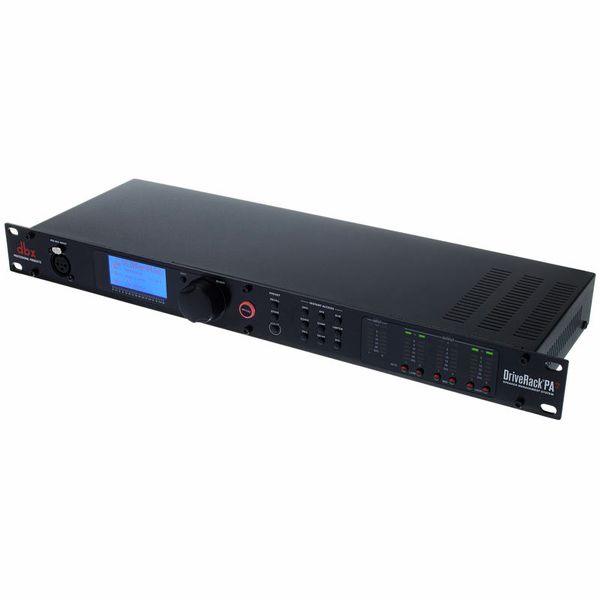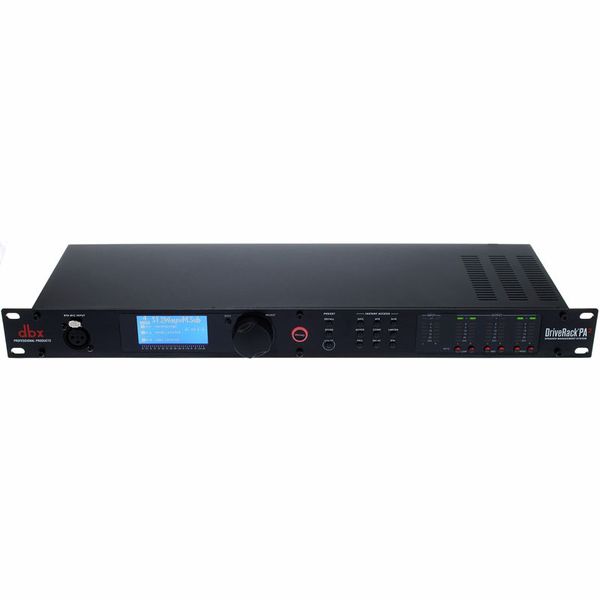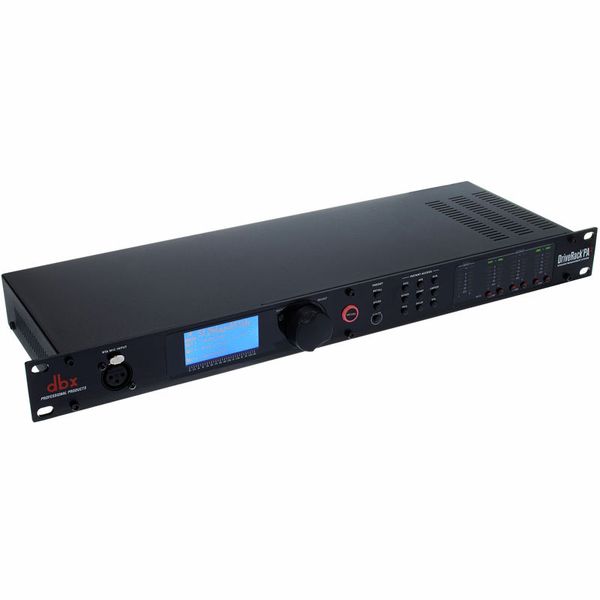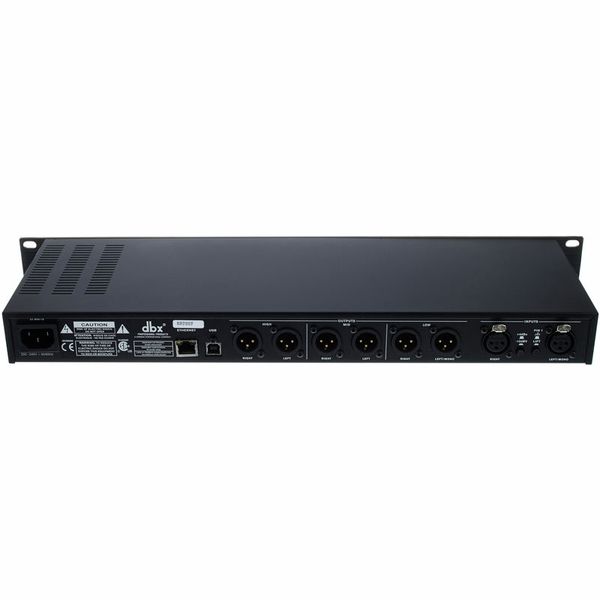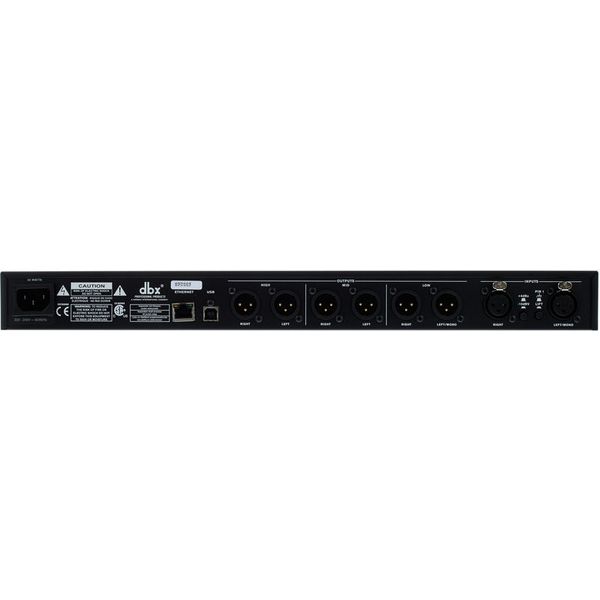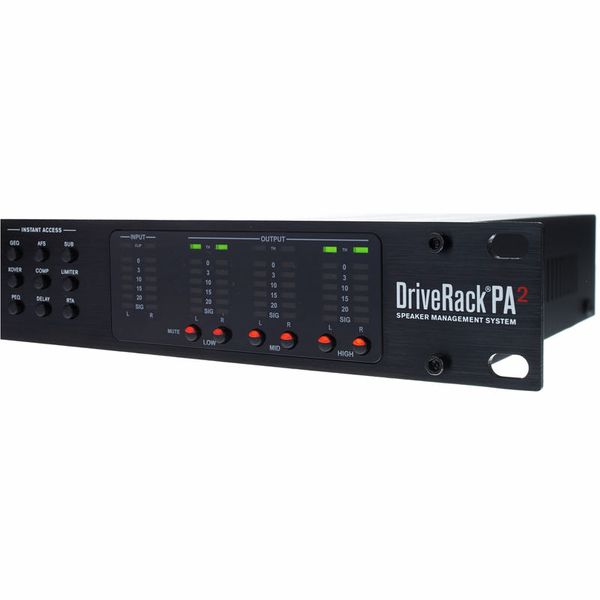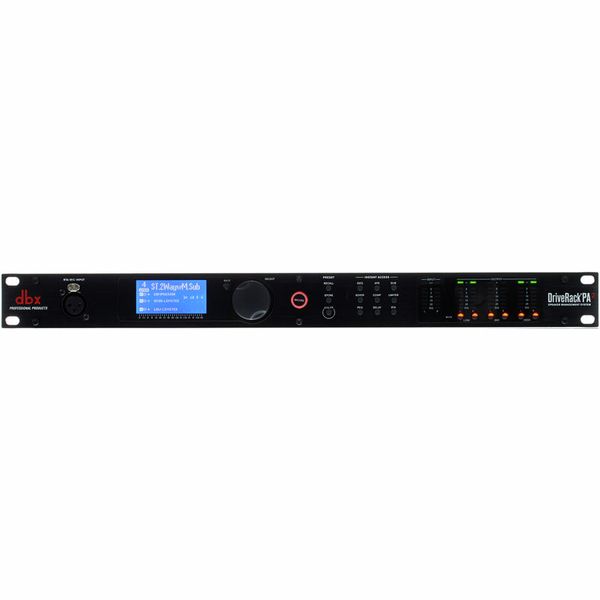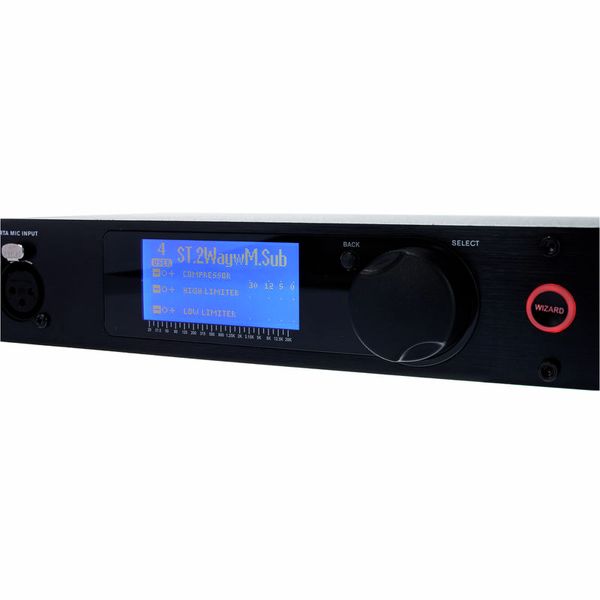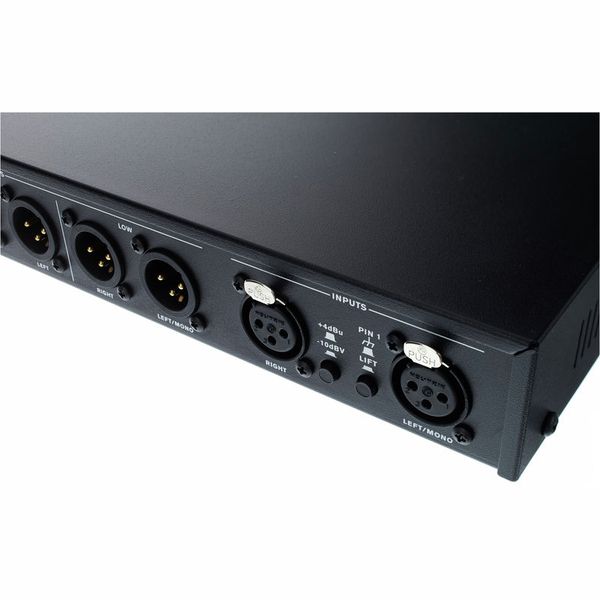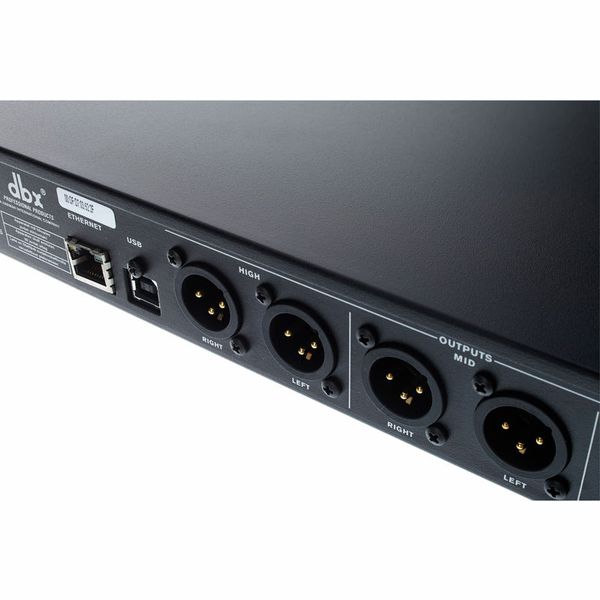I was looking for an active crossover and ended up deciding to just go for a full loudspeaker management system!
The goal was - 1.) get full crossover functionality with different filters available, 2.) have remote control capability through PC and 3.) spend no more than ¤400 for it.
The candidates - Behringer DCX2496, Digisynthetic DS24, Phonic i2600, dbx DriveRack PA2 and finally the t.racks DSP's.
After reading ALL the specifications and reviews I could find for each unit, here is a short summary:
Behringer DCX2496: best for pro-level sound systems, where delay lines are a must. Three IN's, two of which can also accept digital AES/EBU signal. Has the most features out of all candidates, but the old remote software and old RS-232 connection are a nightmare to set up (you need an USB modem and not all of them will work). Also, reports of crackling sound and bad ribbon cables inside, along with hum on the signal make it a gamble I was not willing to take.
Digisynthetic DS24: considering the price of only ¤180 (in my country) and having all the crossover filters I needed (up to 48db/oct), it was looking really good! A 3-band PEQ at input and 5-band at output, a limiter, free routing for each output (A, B or SUM) - really all I needed. But then I tried the remote software... it was an epic horror. Buggy, with the graphs for crossover and EQ not working, limiter settings were completely invisible behind a graphics glitch - absolutely useless and out of the question.
Phonic i2600: it is a step down from the DCX2496 in terms of features, lacking in PEQ bands and having one less input channel. Has a USB port for remote control, the software looks good, it even has one digital stereo AES/EBU input. It does two things better than the Behringer - the RTA functionality to automatically measure and set up your sound system and it's got a subharmonic synth for extra bass response. But it's missing ONE important option - the LR 48db/oct filter! It only goes up to 24db/oct, which sometimes isn't enough to roll off a frequency. So I looked at the next option...
The t.racks DSP's: there were 3 models actually, first one the DS 2/4, which had the dreaded RS-232 remote port (not for me), the Achat DSP 24, which looked A LOT like the Digisynthetic DS24 (but 2x more expensive) and finally the DSP 26...which was actually cheaper than DSP 24. That didn't make sense, because it's got 2 more outputs than the former model! Then I read the manual... no LR 48db/oct crossover filters again. Pass!
dbx DriveRack PA2: ...saving the best for last. First off, the negatives - 35% more expensive than the DCX2496. And in terms of professional settings, it doesn't compare to the Behringer (no input/output routing, weaker delay options, no digital ins and one less input channel). But from here on, it starts to catch up - a LAN remote control through a router (even a WiFi one!), snappy modern software, smooth playback while you change settings live (the Behringer actually cuts out playback at some setting changes!). Then, we move on to the full 31-band stereo graphic equalizer, the subharmonic processor, a complete feedback destroyer, the RTA wizard, along with pink noise and white noise generators (all of which don't exist on the DCX2496) and now I saw its price tag as very justified! Then, there is the full filter set on the crossover, 8-band PEQ's on the output stages, a really good limiter and to top it all off - a comprehensive list of presets for different brands of speakers, amplifiers, plus a vivid software that makes setup easy and fun!
My choice was already made on the DBX DriveRack PA2 at this point, but there are 3 more very important things to mention about this unit:
1.) DI Box Functionality - It actually has a +4dbu/-10dbv switch for balanced/unbalanced input signal and a Ground/Lift knob on its back. This means, if you want to connect your PC, phone or home audio to it, go right ahead - no external DI box needed, more cash saved! Eliminates ground hum noise at the touch of a button.
2.) Sound Quality - my ears are happy and so are all other buyers, from the reviews Ive read across the net.
3.) Reliability - again, based on all the reviews, this unit will perform a long time, especially if you take good care of it and don't block its heat vents.
I hope someone finds this review useful! As they say in German, Klare Kaufempfehlung for the DBX DriveRack PA2 from me! Im out :D



